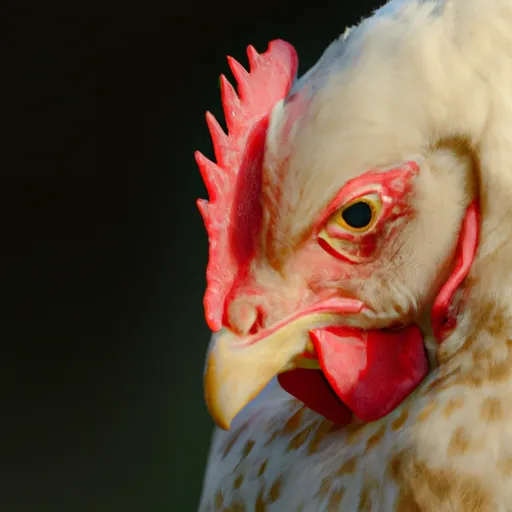Easter Eggers: Friendly, Winter-Hardy, and Great Egg Layers – Everything You Want in a Backyard Chicken
If you’re looking for the perfect backyard chicken that is friendly, winter-hardy, and great at laying eggs, look no further than the Easter Egger.
This unique breed of chicken has become increasingly popular among small farmers and homeowners alike due to its charming personality and impressive egg production.
In this article, we will explore everything you need to know about Easter Eggers, including their history, benefits, care requirements, and common questions answered.
Introduction to Easter Egger Chickens
The Easter Egger is not actually a recognized breed by the American Poultry Association, but rather a mixed breed created from crossing various chicken breeds such as Ameraucanas, Araucanas, and other breeds with blue or green eggs.
Despite their lack of official recognition, these birds have quickly gained popularity due to their unique appearance and hardiness.
They are known for their striking color combinations, which can include black, white, gray, brown, and even pink feathers. Additionally, they have a fluffy texture and often sport muffs around their faces, making them quite adorable.
Benefits of Keeping Easter Egger Pullets
There are many reasons why people choose to keep Easter Egger pullets in their backyard.

For one thing, they are incredibly friendly and social animals, making them ideal for those who want a pet that will interact with them regularly.
They also tend to be more docile than some other breeds, so they are less likely to cause problems when handled.
Another major benefit of keeping Easter Eggers is their ability to adapt well to cold weather conditions.
See also The Insiders Guide - Do Chickens Like Water
Unlike some other breeds, they are able to tolerate lower temperatures without difficulty, making them an excellent choice for areas with harsh winter climates.
Finally, perhaps the most appealing aspect of Easter Eggers is their prolific egg laying abilities.
These birds typically produce large numbers of medium-to-large-sized eggs on a regular basis, making them a valuable source of fresh food for families and individuals alike.
How to Care for Easter Egger Pullets
Caring for Easter Egger pullets is relatively straightforward, although there are certain steps you should take to ensure their health and happiness.
First and foremost, make sure your birds have access to plenty of high-quality feed and water. You may also wish to supplement their diet with treats like fruits and vegetables, which can help boost their overall nutrition.
It’s also important to provide your chickens with a clean and comfortable living space, complete with nest boxes, perches, and dust bathing areas. Regular maintenance, such as removing droppings and disinfecting surfaces, is essential to prevent disease outbreaks.
Tips for Breeding and Hatching Easter Egger Chicks
For those interested in breeding and hatching Easter Egger chicks, there are several tips to consider.
First, it’s essential to select pairs that are closely related genetically, as this can reduce the risk of birth defects and other issues. Once you have chosen your breeding stock, separate males and females into different pens to avoid aggression and encourage mating behavior.
After fertilization occurs, collect eggs and place them in an incubator set to 99 degrees Fahrenheit with 50% humidity. Within three weeks, your Easter Egger chicks should begin to hatch!
See also Getting the Most Out of Your Backyard Chickens: How to Maximize Egg Yield With Proper Feeding
Common Questions About Easter Egger Chickens Answered
One question commonly asked about Easter Egger chickens is whether they are good meat producers.
While they are certainly capable of producing tasty meat, they are primarily kept for their egg laying capabilities. Another frequently asked question is how long Easter Eggers live.
On average, these birds can expect to live between five and seven years, although some may live longer depending on factors like climate, diet, and general care.
Finally, many people wonder if Easter Eggers are prone to any specific health issues.
Like all chicken breeds, they can experience illnesses such as respiratory diseases, parasites, and bacterial infections.
However, proper care and management practices can go a long way towards minimizing these risks.
Easter Egger chickens offer numerous benefits for both experienced farmers and novice backyard enthusiasts.
With their friendly personalities, hardiness, and prodigious egg-laying abilities, it’s easy to see why these birds have become so popular.
Whether you’re considering adding Easter Eggers to your existing flock or starting a new one altogether, rest assured that these beautiful birds will bring joy and abundance to your life for years to come.
